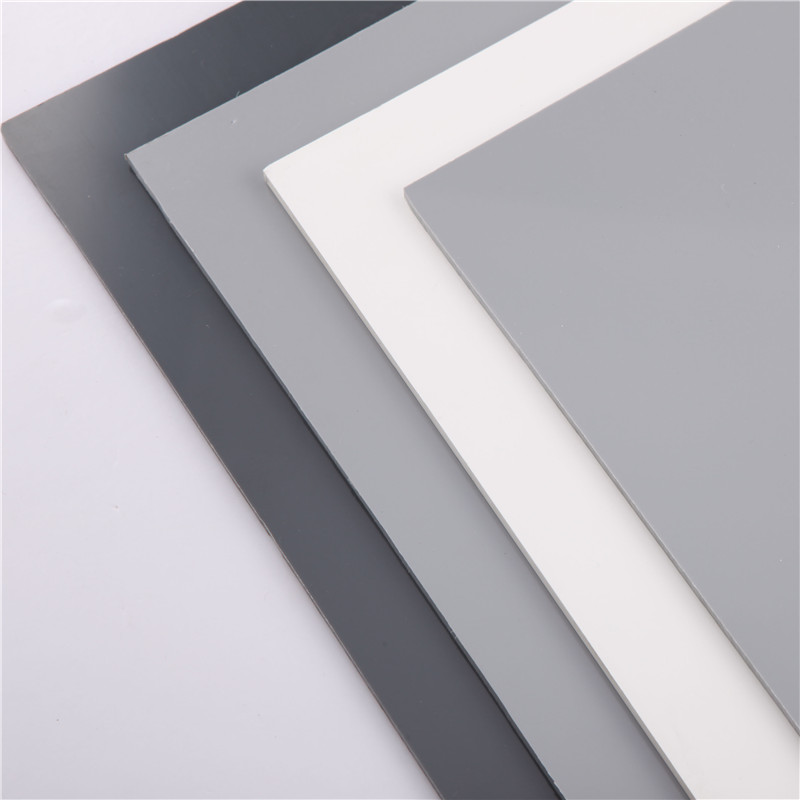Nov . 05, 2024 18:49 Back to list
solid hdpe pipe
Understanding Solid HDPE Pipe A Comprehensive Overview
High-Density Polyethylene (HDPE) is an advanced material widely used in various applications, primarily for its durability, resistance to chemicals, and flexibility. Solid HDPE pipes, a specific form of HDPE, have garnered significant attention in industries ranging from construction to agriculture. This article aims to provide a comprehensive understanding of solid HDPE pipes, highlighting their properties, applications, and advantages.
What is Solid HDPE Pipe?
Solid HDPE pipe is formed from high-density polyethylene, a thermoplastic polymer known for its high strength-to-density ratio. This form of piping is characterized by its solid structure and is predominantly used in pipe systems for drainage, irrigation, and various industrial applications. Unlike other types of pipes that may have hollow centers or complex designs, solid HDPE pipes offer a straightforward solution for fluid and material conveyance.
Properties of Solid HDPE Pipe
1. Durability One of the standout features of solid HDPE pipes is their exceptional durability. They can withstand harsh environmental conditions and resist wear and tear over time. This makes them suitable for applications in diverse environments, from coastal areas to industrial facilities.
2. Chemical Resistance Solid HDPE pipes exhibit impressive resistance to a wide range of chemicals, including acids and alkalis. This property makes them an excellent choice for industries that handle corrosive materials.
3. Flexibility While solid HDPE pipes are rigid in structure, they possess a degree of flexibility that allows them to be used in applications that involve bending or twisting. This versatility can simplify installation and reduce the need for specialized fittings.
4. Lightweight Compared to traditional materials such as metal or concrete, solid HDPE pipes are relatively light. This characteristic facilitates easier handling and installation, lowering labor costs and reducing the need for heavy machinery.
5. Low Friction Coefficient The internal surface of solid HDPE pipes is smooth, resulting in a low friction coefficient. This trait allows for better flow rates and minimizes energy consumption in pumping systems.
Applications of Solid HDPE Pipe
Due to their beneficial properties, solid HDPE pipes find extensive use in various sectors
solid hdpe pipe

- Water and Wastewater Management Solid HDPE pipes are widely employed in the transportation of potable water, sewage, and stormwater. Their resistance to corrosion and biological growth makes them ideal for maintaining the integrity of water systems.
- Agricultural Use In agriculture, solid HDPE pipes are utilized for irrigation systems. Their durability and flexibility provide an efficient means of transporting water, improving agricultural productivity and sustainability.
- Industrial Applications Many industries, including chemical and food processing, utilize solid HDPE pipes due to their robust chemical resistance. These pipes ensure safe and reliable transport of various substances.
- Telecommunications Solid HDPE pipes are also used as conduits for wiring in telecommunications. The lightweight nature of the pipes simplifies installation processes while providing protection for the cables.
Advantages of Solid HDPE Pipe
The advantages of solid HDPE pipes make them a popular choice among engineers and construction professionals
- Environmental Impact Solid HDPE pipes are recyclable, making them an environmentally friendly option. Their long life cycle further reduces the need for frequent replacements, contributing to sustainability.
- Cost-Effectiveness Although the initial investment in solid HDPE pipes may be comparable to other materials, their durability and low maintenance costs lead to significant savings over time.
- Ease of Installation The lightweight nature of solid HDPE pipes translates to faster and simpler installation processes, ultimately minimizing project timelines and labor costs.
Conclusion
Solid HDPE pipes have established themselves as a vital component across many industries, thanks to their numerous benefits. Their durability, flexibility, and resistance to various environmental factors and chemicals make them an ideal choice for a wide range of applications. As industries continue to seek more efficient and sustainable solutions, the demand for solid HDPE pipes is likely to grow, solidifying their place in modern infrastructural development. Understanding the capabilities and advantages of solid HDPE pipes is essential for making informed decisions in engineering, construction, and environmental stewardship.
-
High-Quality PPR Pipes and Fittings Durable ERA PPR & PVC PPR Solutions
NewsJul.08,2025
-
Black HDPE Cutting Board - Durable, Non-Porous & Food Safe HDPE Plastic Cutting Board
NewsJul.08,2025
-
High-Quality CPVC Panel Durable HDPE & PVC Panels Supplier
NewsJul.08,2025
-
Double PE Welding Rod Supplier - High Strength, Durable & Versatile Welding Solutions
NewsJul.07,2025
-
High-Quality PVC-O Pipe Supplier Durable 75mm PVC Pipe & Connections Leading PVC Pipe Company
NewsJul.07,2025
-
HDPE Drainage Pipe Supplier – Durable & Corrosion-Resistant Solutions
NewsJul.06,2025

